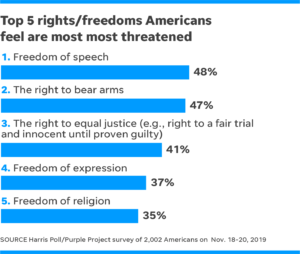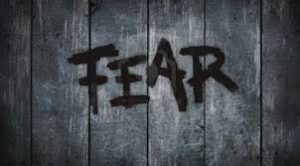Impeach.
December 19, 2019Christianity Today
MARK GALLI
DECEMBER 19, 2019
An important moment: Christianity Today, the key evangelical magazine founded by Billy Graham, calls for Trump’s impeachment, describing him as “a near perfect example of a human being who is morally lost and confused.”
But the facts in this instance are unambiguous: The president of the United States attempted to use his political power to coerce a foreign leader to harass and discredit one of the president’s political opponents. That is not only a violation of the Constitution; more importantly, it is profoundly immoral.
The reason many are not shocked about this is that this president has dumbed down the idea of morality in his administration. He has hired and fired a number of people who are now convicted criminals. He himself has admitted to immoral actions in business and his relationship with women, about which he remains proud. His Twitter feed alone—with its habitual string of mischaracterizations, lies, and slanders—is a near perfect example of a human being who is morally lost and confused.
To the many evangelicals who continue to support Mr. Trump in spite of his blackened moral record, we might say this: Remember who you are and whom you serve. Consider how your justification of Mr. Trump influences your witness to your Lord and Savior. Consider what an unbelieving world will say if you continue to brush off Mr. Trump’s immoral words and behavior in the cause of political expediency. If we don’t reverse course now, will anyone take anything we say about justice and righteousness with any seriousness for decades to come? Can we say with a straight face that abortion is a great evil that cannot be tolerated and, with the same straight face, say that the bent and broken character of our nation’s leader doesn’t really matter in the end?
Mark Galli is editor in chief of Christianity Today.
https://www.christianitytoday.com/ct/2019/december-web-only/trump-should-be-removed-from-office.html
Basic American Rights
92% of Americans think their basic rights are being threatened, new poll shows
Americans are most concerned that their freedom of speech (48%), right to bear arms (47%) and right to equal justice (41%) are at risk, says the Harris Poll/Purple Project, which surveyed 2,002 people nationwide.
“When you frame something as a threat, it creates a bit of a political response, and it creates division and encampments of special interest,” said John Gerzema, CEO of the Harris Poll. That’s why political parties and lobbying groups warn supporters with strident language, he said: It’s easier to drum up backing for a political cause by talking about an issue in terms of “threats.”
But when you start to consider which rights and freedoms really matter, Gerzema said, poll responses changed – and Americans re-prioritized which values they cared about most.
When asked what rights and freedoms Americans would miss if they were taken away – rather than which ones are threatened – poll respondents’ concerns generally ticked upward.
Sixty-three percent said they would miss freedom of speech if that right was taken away, while nearly half would miss freedom of expression (46%) and the right to equal justice (45%).
“When you look at the things we really value, what makes America so special is these core tenets of our Constitution,” Gerzema said. “I just find it interesting to note how much Americans really value this.”
The poll results come at a juncture in American politics where friction and division are more apparent – and Americans are overwhelmingly frustrated by the discourse. In fact, another recent survey, a Public Agenda/USA TODAY/Ipsos poll, shows that the divisive national debate over just about everything has convinced many that the country is heading in the wrong direction. More than nine of 10 in that poll said it’s crucial for the U.S. to try to reduce that divisiveness.
Even among Americans with opposing political views, a majority surveyed in the Harris Poll/Purple Project – 55% – want more meaningful conversations.
How can this be done? Talking about issues in a way that de-escalates tensions from a threat and helps Americans find common ground, Gerzema said. So does finding common ground on shared values and freedoms, both at the dinner table and between the political aisle, he said.
Even if Americans don’t agree on a contentious, politically charged topic, they can find shared values in the things that Americans tend to take for granted, he said.
After all, only 16% of Americans thought their right to own property was under threat, but 44% would miss that right. Same goes for free speech, which 63% said they would miss if it was gone – 15% more than felt free speech was at risk of being taken away.
Gerzema’s advice to the folks in Washington? Focus on the things that are fundamental to the American way of life.
“There is something wonderful going on underneath the surface, and that’s what I wish our leaders in Washington would pay attention to,” he said. “You start to see the true, softer side of America’s rough-and-tumble political reality.”
Even if your voice shakes.
The truth is that what we want or dream of doesn’t always last. It tends to serve its purpose in our development and then fades away, losing its relevance. And we can do enormous damage to ourselves by insisting on carrying that which has died.
Living up to a dream is rarely as important as entering it for all it has to teach.
What is it teaching you?
-Mark Nepo
Absence of fear…
…does anger follow?
‘…when one cherishes no desire, when one bears no hate, then is one said to have attained to the state of Brahma. -The Mahabharata
Fear is the only we shall be afraid of. It is not the host encamped against us, nor the confusion of war around us, that we need to fear; it is a lack of confidence in the good that alone should cause concern.
Through inner spiritual vision we know that evil is transitory, but good is permanent.
Then we should cherish no fear and when we neither fear nor hate when we come to understand the unity of life and then, our lesson tells us, we have attained to the state of Brahma (conscious union with God.)
Today my heart is without fear.
-Ernest Holmes
The Mahābhārata is the longest epic poem known and has been described as “the longest poem ever written”.Its longest version consists of over 100,000 śloka or over 200,000 individual verse lines (each shloka is a couplet), and long prose passages. At about 1.8 million words in total, the MahābhārataAmong the principal works and stories in the Mahābhārata are the Bhagavad Gita, the story of Damayanti, an abbreviated version of the Rāmāyaṇa, and the story of Ṛṣyasringa, often considered as works in their own right.





